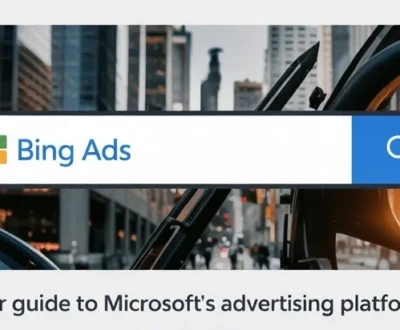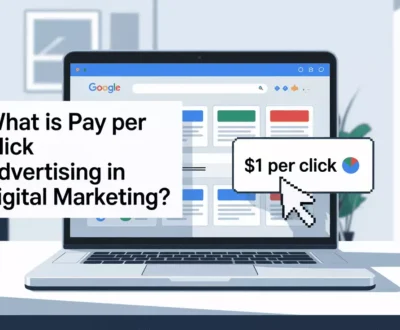Search engine optimization (SEO) is an ever-evolving field, and staying informed about Google’s algorithm updates is crucial for website owners, digital marketers, and SEO professionals.
One of the latest updates reveals that Google now discounts all reciprocal links, marking a significant shift in link-building strategies. This article explores reciprocal links, Google’s rationale for devaluing them, their impact on SEO, and alternative strategies to maintain and enhance search rankings.
What Is Reciprocal Links
Reciprocal linking refers to the mutual exchange of links between two websites. For instance, if Website A links to Website B, and Website B reciprocates by linking back to Website A, this forms a reciprocal link.
Historically, this practice was commonly employed to boost domain authority and search rankings.
While reciprocal links were once a standard SEO strategy, Google’s evolving algorithms now prioritize high-quality, organic backlinks over artificial link exchanges.
The shift toward discounting reciprocal links underscores Google’s commitment to ensuring that links serve as genuine endorsements rather than strategic manipulations.
Why Google Now Discounts Reciprocal Links
Google continuously updates its search algorithm to mitigate manipulative SEO tactics. The decision to discount reciprocal links is driven by several key factors:
1. Preventing Link Manipulation
Reciprocal linking is often used to artificially inflate rankings rather than to provide genuine value to users. By discounting these links, Google aims to ensure that only natural and meaningful backlinks contribute to search rankings.
2. Emphasizing Content Quality
Google’s objective is to prioritize websites with authoritative, high-quality content. When sites rely heavily on reciprocal links, it diminishes the authenticity of their backlink profile.
3. Combating Link Schemes and Private Blog Networks (PBNs)
Some SEO practitioners create PBNs or engage in widespread reciprocal linking schemes to manipulate rankings. Google’s latest update aims to curb such practices by reducing the influence of these links.
4. Encouraging Organic Backlink Growth
Rather than relying on link exchanges, Google encourages website owners to earn backlinks naturally from authoritative sources. Reciprocal links often lack genuine endorsements, reducing their effectiveness in improving rankings.
Impact on SEO
The devaluation of reciprocal links necessitates adjustments in SEO strategies. Key implications include:
1. Diminished Effectiveness of Link Exchanges
Websites that depend heavily on reciprocal links may experience a decline in their backlink value, leading to potential ranking drops.
2. Increased Need for Organic Link Acquisition
With reciprocal links losing their impact, websites must now prioritize obtaining organic backlinks from reputable sources.
3. Reevaluation of Partnership and Affiliation Strategies
Businesses that previously engaged in reciprocal linking as part of collaborations must explore alternative ways to maintain valuable connections while complying with Google’s guidelines.
4. Risk of Manual Actions for Excessive Reciprocal Linking
While Google primarily discounts these links rather than penalizing them, excessive reliance on reciprocal linking could still trigger manual penalties or decreased visibility in search results.
Alternative Link-Building Strategies
To maintain a strong backlink profile in light of Google’s update, consider the following strategies:
1. Guest Blogging
Publishing high-quality guest posts on authoritative websites remains one of the most effective ways to earn backlinks. Focus on providing valuable, informative content that naturally attracts links.
2. Developing High-Quality Content
The best way to attract organic backlinks is by creating compelling, shareable content. Articles, case studies, infographics, and original research can generate natural inbound links from authoritative sources.
3. Building Relationships with Industry Influencers
Establishing connections with influencers and thought leaders in your niche can lead to organic link-building opportunities through collaborations and mentions.
4. Leveraging HARO (Help a Reporter Out)
Using HARO to provide expert insights to journalists and bloggers can help secure high-authority backlinks.
5. Implementing Broken Link Building
Identifying broken links on reputable websites and offering your content as a replacement is an effective way to gain backlinks while providing value.
6. Creating Linkable Assets
Developing valuable resources such as free tools, calculators, research reports, and comprehensive guides can attract organic backlinks from authoritative sites.
7. Utilizing Social Media and PR for Link Acquisition
Promoting your content through social media, digital PR campaigns, and collaborations with journalists can lead to natural backlinks from reputable sources.
Best Practices for Ethical Link Building
While reciprocal links are now discounted, ethical link-building remains a crucial aspect of SEO. Adopting the following best practices can help maintain a strong and sustainable backlink profile:
- Prioritize Quality Over Quantity: A few authoritative backlinks carry more weight than numerous low-quality links.
- Avoid Link Schemes: Refrain from participating in unnatural link exchanges, link farms, or automated linking programs.
- Focus on Relevance: Secure backlinks from websites that are relevant to your industry or niche rather than from unrelated sources.
- Monitor Your Backlink Profile: Use SEO tools such as Ahrefs, Moz, or Google Search Console to track your backlinks and disavow any toxic links.
- Engage in Thought Leadership: Position yourself as an industry expert by contributing to authoritative publications and participating in expert roundups.
Conclusion
Google’s decision to discount all reciprocal links marks a pivotal shift in the SEO landscape. While reciprocal linking was once a widely accepted practice, it is now a less effective strategy for improving search rankings.
To adapt to Google’s evolving algorithms, website owners and SEO professionals must focus on earning high-quality, organic backlinks through content creation, influencer collaborations, guest blogging, and ethical SEO techniques.
By embracing these strategies, businesses can maintain a strong online presence and remain competitive in search rankings.
About us and this blog
We are a digital marketing company with a focus on helping our customers achieve great results across several key areas.
Request a free quote
We offer professional SEO services that help websites increase their organic search score drastically in order to compete for the highest rankings even when it comes to highly competitive keywords.
Subscribe to our newsletter!
More from our blog
See all postsRecent Posts
- What Are Bing Ads? A Beginner’s Guide to Getting Started April 15, 2025
- What Is Pay Per Click Advertising In Digital Marketing April 12, 2025
- Best Facebook Ads Tips in 2025 For Highest ROI April 11, 2025







